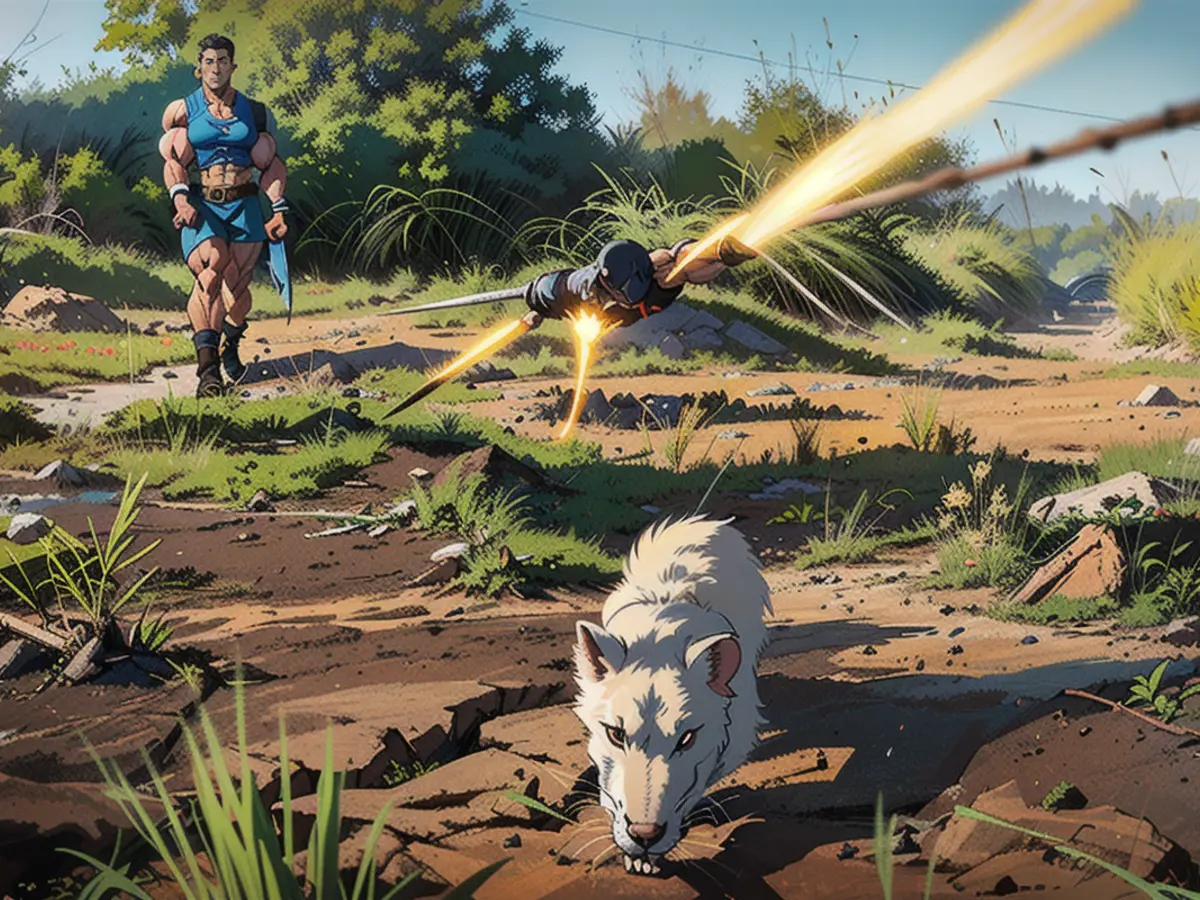"Rodent heroes" aid in mine clearing in Angola
Angola is known for its abundant mine resources. Even after the civil war, landmines continue to cause injuries and deaths in the country. Every month, new victims come forward. Specially trained giant pouched rats are being used to expedite mine clearance.
Baraka, a giant pouched rat, races through minefields, oblivious to potential danger. He cannot see well but has an incredibly keen sense of smell. Tethered to a small container, Baraka is accompanied by two individuals wearing protective gear. Since Baraka is in an area where mines might be buried, the rat has an essential role in finding explosives. If it detects them, it stops, sniffs intensely, and then digs a little in the ground. This signals that Baraka has located a mine, explains Raul Ilidio, Baraka's human partner. Warning signs are placed at the field's edge to indicate the mine's exact position. Human experts can then defuse the bomb.
Baraka is among the twelve giant pouched rats used by Apopo, a Belgian organization, to clear landmines in Angola's Kwanza Sul Province. They're called "hero rats" because they save lives in post-war Angola, one of the countries with the most landmine casualties globally. Since the civil war, more than 88,000 landmine injuries have been reported in the 36-million-inhabitant country in southern Africa. Most likely, the real number is significantly higher, says the international "Landmine Monitor." The world first learned of the Angolan situation in the late 1990s when British Princess Lady Diana visited the war-torn country and walked across a minefield in protective clothing. The images that followed caused an international outcry.
Monthly casualties
Missing mines make clearance difficult, dangerous, and time-consuming. According to the latest "Landmine Monitor" report, about 68 square kilometers remain to be cleared in Angola, 22 years after the end of the civil war. The land has cleared approximately six square kilometers per year. This creates risks for the population as 107 people were killed or injured by landmines in 2022, per the report. Manuel Agostinho, Apopo's Angola project manager, states, "There's no month without new victims."
Using giant African giant pouched rats as mine detectors is causing significant progress. These rats work far more efficiently than humans. A mine expert with a metal detector typically takes two days to clear 200 square meters, risking their life in the process. Conversely, Apopo's rats do the same task in half an hour. Rats may be small at two kilograms maximum, but they're light enough not to set off an anti-personnel mine, says Shaibu Hamisi, Apopo's rat training expert. Even a sniffer dog wouldn't be light enough.
Each rat used in minefields must go through a thorough training process, equivalent to six to eight months. Rats are also regularly tested. Precision is vital, as mistakes can cost lives. With the help of these rodents, villagers can cultivate their fields, gather firewood, and children can roam safety. The village of Calulo in Kwanza Sul is fervently anticipating the removal of minefields by Apopo, allowing their children to grow up without the threat of landmines. Most villagers are aware of the hidden dangers and know of a family that experienced an accident.
Ana José Capagaio, a single mother of seven children, unfortunately experienced the results of landmines firsthand. Three years ago, the 37-year-old lost her left leg. She had only walked a short distance to find firewood when she stepped on a landmine. Although she survived, Capagaio relies on charity now. Her brother, João Capagaio, remarks that the villagers knew about the landmines but did not know their exact location. Watching Apopo's progress, he hopes his children will grow up without the threat of landmines in the future.
Apopo's hero rats are used in other mine-contaminated countries: Cambodia, Vietnam, Thailand, Laos, and Zimbabwe. Their swift work might promote quicker progress in mine clearance. Angola won't meet its goal of clearing all mines by the end of 2025.
The United Nations Mine Action Service (UNMAS) informs us that around 110 million landmines are buried in the ground of 70 countries around the globe. If these landmines were placed 1 meter apart, they would almost completely circle the planet. In Afghanistan, Bosnia and Herzegovina, Cambodia, Croatia, Ethiopia, and Turkey, landmine contamination is particularly high. Each month, the UN estimates that around 2,000 individuals are either killed or injured by landmines worldwide. Regrettably, half of these victims are innocent civilians, with many being children. As per UNMAS, producing one anti-personnel landmine costs less than 1 euro. However, it would take between 300 and 1,000 euros to clear one mine, and it's a time-consuming process as well.
Read also:
- Floods: water levels remain critical in many places
- Snow chaos further restricts Bavaria
- Continuous operation in the flood areas
- Flood situation remains tense in many places
- Despite efforts to clear landmines in Angola following its civil wars, these destructive devices continue to pose a threat to its population, as evidenced by the 107 individuals injured or killed in 2022 alone, according to the "Landmine Monitor".
- International organizations, such as the Belgian organization Apopo, are turning to innovative solutions to address this issue, training African giant pouched rats to detect landmines in regions like Angola's Kwanza Sul Province. These 'hero rats' work far more efficiently than humans, semblably finding landmines in just half an hour, as opposed to two days for a human expert.
- The effectiveness of these rodent heroes in addressing landmines is not limited to Angola, as they are also being utilized in other landmine-contaminated countries, including Cambodia, Vietnam, and Thailand, making significant strides in global mine clearance initiatives.
Source: www.ntv.de






